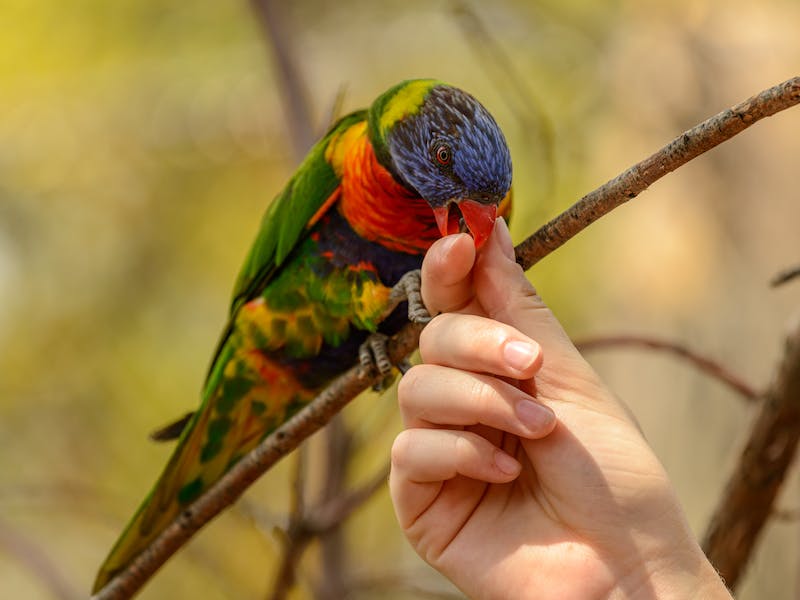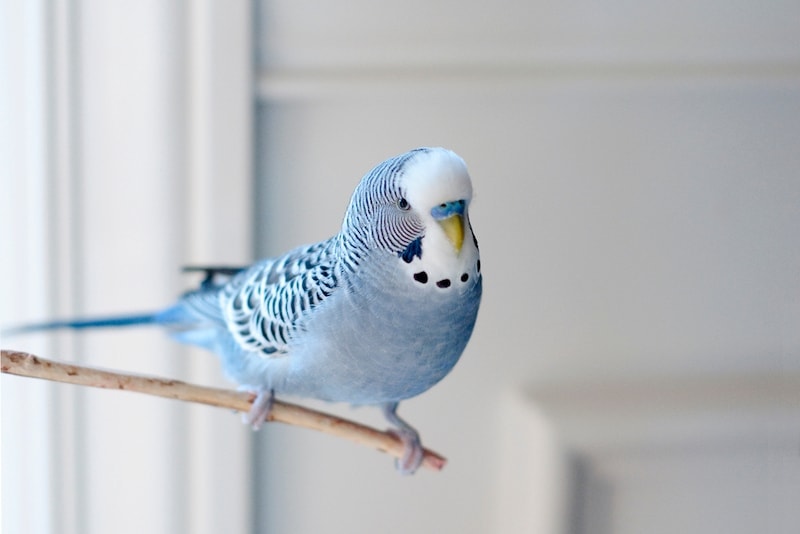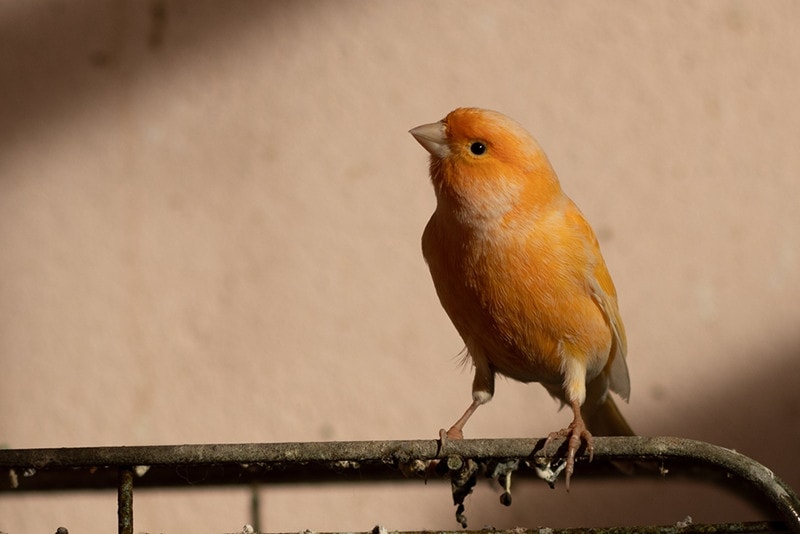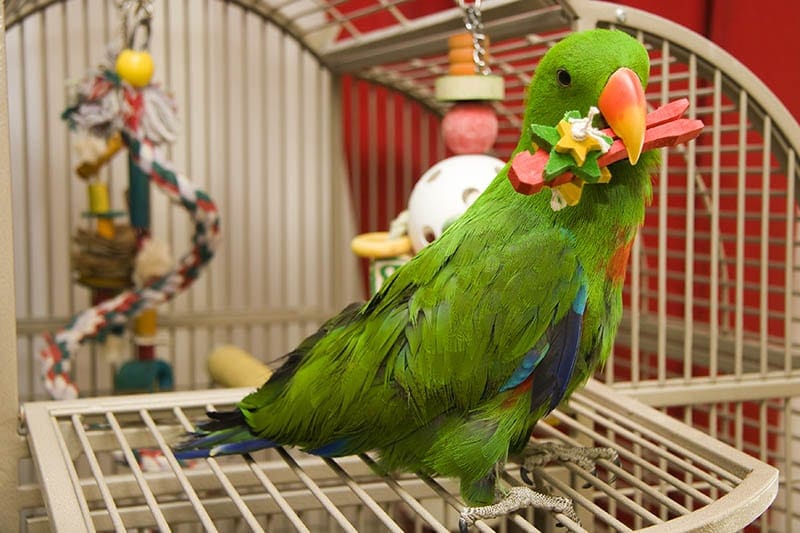Do Parakeets Bite? Their Behavior Explained

Updated on

Click to Skip Ahead
Parakeets are popular pet birds that are docile and friendly. However, parakeets have the same fight or flight instinct as other animals, so they may bite when scared or cornered.
Learn more about why parakeets may bite and what you can do to correct the behavior to restore a happy relationship with your bird.
Why Do Parakeets Bite?
Any animal can bite, from dogs and cats to small mammals and reptiles. Many of our domesticated or tamed pet animals are less likely to bite than their wild counterparts, but that doesn’t mean it’s impossible.
Typically, a parakeet will bite if they’re scared. This is usually accompanied by the bird flapping around the cage to escape when you approach, even though they have nowhere to go.
Some parakeets will freeze in place in response to fear, however. This is often seen in parakeets that aren’t truly tame. They seem docile, but it’s merely a stress response to being in a new environment. Freezing is a way of drawing less attention to themselves.
Most predators can’t see prey well if it isn’t moving, so standing still is an instinctual response for the parakeet. However, once the parakeet becomes more comfortable in their surroundings, they’re likely to act out by trying to flee. If you don’t back off, the bird may bite as a last resort.
Another reason your parakeet may bite is as a way of exploring the world. This bite is often different from a warning bite and less forceful. It may occur if your bird is trying to reach out with their beak first to grasp the surface—such as your hand—and pull their bodies toward you to stand.

How to Discourage Biting in Your Parakeet
Birds are not naturally inclined to bite, despite popular belief. Most pet birds start biting when they’re taught to be afraid of human hands. Baby birds can typically be touched all over before attempting to bite.
Birds are also in tune with human emotions, so they know if you’re afraid of them. If you want to discourage your bird from biting when trying to get it to step onto your hand, you have to be strong and confident.
You should present your hand in front of the bird’s belly near their legs and say “Step up” in a clear voice. Don’t waver or pull back, even if your bird reaches out beak first. Just as you wouldn’t step onto a shaky platform, your bird won’t feel safe stepping onto a trembling hand.
If your Parakeet bites down firmly as it steps up, don’t yell, scold, or pull away. You’ll only teach your bird that your moving hand is something to fear. They’ll also become afraid of you as you scream.
Just one negative experience of a bird stepping out onto your hand, which could lead to them stumbling or falling, can be enough to instill fear. If you aren’t yet comfortable enough to present your hand firmly, consider wearing a glove or offering a sturdy perch instead. Remember that you still need to provide a steady perch for the bird, or they will fear whatever you offer.
You should pay attention to your bird’s body language as well. If your bird doesn’t want to step onto your hand or be touched, they will lean forward, puff out, dilate their pupils, and open their beaks a little. These are signs that your bird wants you to back off. Pay attention to them, as this is your bird’s way of warning you off to avoid biting. If you push, they’ll have to resort to biting. Wait a few minutes and try again.

What to Do if Your Parakeet Bites
All birds will likely bite at one time or another. It’s important to react correctly to discourage the behavior from happening again.
Don’t yell or scold your bird. Doing this only rewards your bird with attention, encouraging them to bite again in the future. If your bird bites, gently put them down and walk away. Once the bird has calmed down, you can try to pick them up again.
Conclusion
A biting parakeet can be a startling experience, but they don’t usually do much damage. If your parakeet is biting, it’s likely because of fear. Working with your parakeet slowly can discourage the behavior and teach your bird that you’re safe and trustworthy.
Featured Image Credit: Pexels










